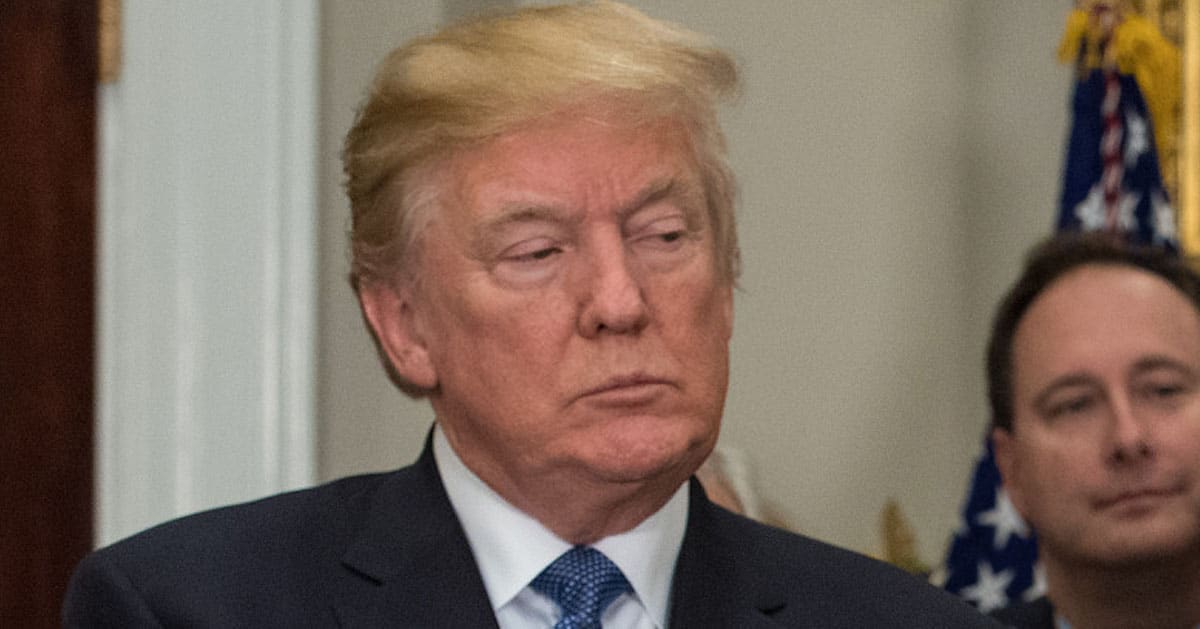



The Justice Department is gutting the A.T.F.’s gun inspector workforce by two-thirds, a move that’s got Second Amendment fans cheering and gun control advocates clutching their pearls.
This isn’t just a trim; it’s a full-on chainsaw massacre of the Bureau of Alcohol, Tobacco, Firearms and Explosives’ ability to police federally licensed gun dealers. The Trump administration’s fingerprints are all over this, and it’s a clear signal: less government, more freedom.
The New York Times reported that the Justice Department’s plan, rolled out in a budget summary last week, slashes 541 of the roughly 800 inspectors tasked with ensuring gun dealers follow federal laws.
This drastic cut aims to shrink the A.T.F.’s $1.6 billion budget by nearly a third, aligning with the White House’s push to downsize the agency. It’s a bold step to curb what many conservatives see as bureaucratic overreach.
These inspectors aren’t just paper-pushers; they’re the ones keeping tabs on about 100,000 gun dealers, collectors, and manufacturers. With only a fraction of these businesses inspected annually, some go nearly a decade without a routine check.
Cutting two-thirds of this already thin workforce means even less oversight, which could either spell freedom or chaos, depending on your perspective.
The budget cuts are part of a broader Trump administration effort to rein in the A.T.F., an agency long viewed by Republicans as a thorn in the side of gun rights.
The plan could lead to hundreds of layoffs, further hobbling the agency’s ability to regulate firearms and explosives. By November, the A.T.F.’s capacity to oversee these industries is expected to drop by 40%.
Attorney General Pam Bondi is already rolling back Biden-era gun control measures, including rules targeting homemade firearms and dealers who dodge background checks.
These reversals signal a shift toward prioritizing individual rights over what some call nanny-state regulations. Conservatives argue this is a victory for law-abiding gun owners tired of federal meddling.
But not everyone’s popping champagne. “These are devastating cuts to law enforcement funding and would undermine A.T.F.’s ability to keep communities safe from gun violence,” said John Feinblatt, president of Everytown for Gun Safety. Nice try, John, but many Americans see this as a win for personal liberty over fear-driven control.
Feinblatt’s not done: “This budget would be a win for unscrupulous gun dealers and a terrible setback for A.T.F.’s state and local law enforcement partners.” Sorry, but the “unscrupulous dealer” boogeyman feels like a tired scare tactic. Most gun dealers are small businesses, not cartoon villains plotting to arm criminals.
The cuts are meant to stop guns from reaching traffickers, straw purchasers, and those with severe mental illness, but with fewer inspectors, that job gets tougher.
The A.T.F.’s inspection program is already stretched thin, and slashing it further might mean more guns slipping through the cracks. Still, conservatives argue that law enforcement should focus on actual criminals, not harassing legal dealers.
Republicans have long viewed A.T.F. inspections as an overstep, infringing on the Second Amendment rights of law-abiding citizens. They argue that the agency’s resources are better spent targeting real threats, not breathing down the necks of honest gun shop owners. This perspective resonates with millions who see gun ownership as a cornerstone of American freedom.
The Justice Department is even floating the idea of merging the A.T.F. with the Drug Enforcement Administration.
It’s a radical move that could streamline operations or, critics warn, dilute the A.T.F.’s focus on firearms regulation. Either way, it’s another sign that the administration is serious about reshaping federal law enforcement.
Gun control activists and some law enforcement groups insist that routine inspections are vital to stopping abuses by retailers who supply guns to criminals.
They’re not wrong that fewer inspectors could mean less accountability. But the question is whether heavy-handed regulation is the answer or if it just punishes the law-abiding.
The A.T.F.’s reduced workforce will struggle to monitor an industry that’s already tough to police. With only a small percentage of dealers inspected each year, the system’s been creaking for a while. Cutting inspectors might force a smarter, more targeted approach—or it could leave gaps for bad actors to exploit.
For many conservatives, these cuts are a long-overdue correction to an agency that’s grown too big for its britches. The A.T.F.’s mission creep has often felt like a solution in search of a problem, especially when legal gun owners face the brunt of its scrutiny. Less oversight could empower responsible citizens while challenging law enforcement to focus on real threats.



